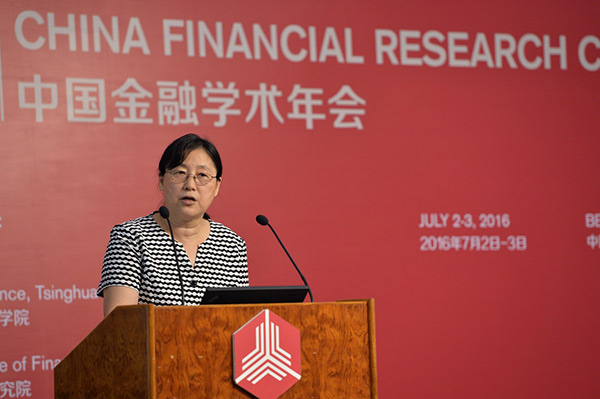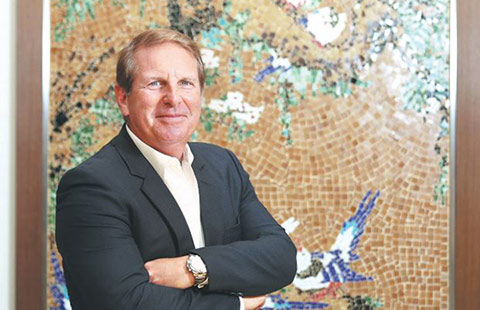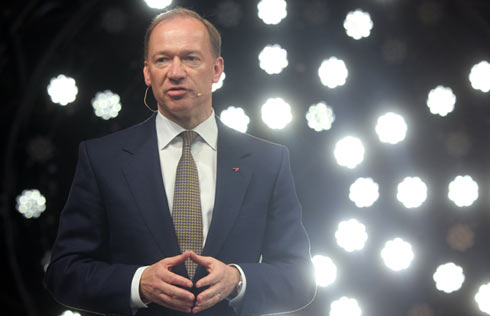China's monetary policy to be more prudent, neutral
 |
|
Zhang Xiaohui, assistant governor of the People's Bank of China, made a keynote speech at the 2016 China Financial Research Conference in Beijing on July 2. [Photo provided to chinadaily.com.cn] |
The central bank, the People's Bank of China (PBOC), Friday raised the interest rate for seven-day repurchase agreements, a key tool used to adjust monetary policy, and for longer 14 and 28-day repo rates.
In January, the PBOC also raised rates on its medium-term loan facility for the first time since it debuted the facility in 2014.
China has kept prudent monetary policy since 2011. However, in practice the policy has been slightly loosening for a period of time due to downward pressure on economic growth, according to Zhang Xiaohui, assistant governor of the PBOC.
Top policy makers said at the annual Central Economic Work Conference in December that China would maintain a "prudent and neutral" monetary policy in 2017.
In an article published Friday in China Finance, a PBOC-run financial magazine, Zhang described the monetary policy for 2017 as "more neutral" and "more prudent."
"China should keep its monetary policy prudent and stable, appropriately expand aggregate demand to avoid an overly-rapid economic slowdown and at the same time refrain from excessive money supply to prevent bubbles," she said.
"The relatively easy monetary policy environment created by cuts to benchmark interest rates and reserve requirement ratios since late 2014 has changed," said Lian Ping, chief economist at the Bank of Communications.
"Monetary policy is currently shifting toward prudence while tilting to slight tightening, a trend that has become more and more clear since the second half of 2016," Lian added.
China International Capital Corporation (CICC), a Beijing-based investment bank, said that authorities were turning their focus to "curbing asset bubbles and guarding against economic and financial risks."
At the Central Economic Work Conference in December, the Chinese leadership pledged to make a priority of preventing financial risks, saying that curbing asset bubbles would assume more importance in 2017.
The caution is justified by the property market, which saw housing prices jump sharply in 2016, and changes to inflation.
China's consumer price index, a main gauge of inflation, in December increased 2.1 percent year on year. But producer prices rose 5.5 percent, the highest in more than five years, fanning inflation expectations.
However, analysts said policymakers would take a gradual approach, given internal and external uncertainties in China's economy, which needs to further consolidate.
China's economy grew 6.7 percent year on year in 2016, higher than most other major economies, but the slowest annual expansion in 26 years.
"The PBOC's moves will effectively guide market interest rates up, but we do not expect benchmark deposit and lending rates to be adjusted in the near term, considering both internal and external uncertainties on China's economy," CICC said.
"The direction of the PBOC's policy is very clear, but it will resort to an orderly and progressive approach," Zeng Gang, a researcher at the Chinese Academy of Social Sciences, told Xinhua in an interview.
"The authorities will take into account the impact of its policies on the financial market and the real economy, and the monetary policy will remain prudent on the whole," said Zeng, who expects the policy to be further adjusted if the Chinese economy experiences major changes.
The central bank would be "very cautious" and "look carefully before taking each step" in changing monetary policy, said Lian, of Bank of Communications, adding that the PBOC would look at reactions in the domestic financial market and the real economy.
"No big moves are expected as the central bank will also take into consideration the US Federal Reserve's possible rate decisions and the renminbi's exchange rate fluctuations," Lian said.
- Expert calls for better coordination of monetary policy tools
- China to keep monetary policy prudent, neutral
- Six key areas to watch on China's economy 2017
- More focus on risk prevention as China signals monetary policy shift
- China needs to maintain stable, smooth liquidity conditions in 2017: Financial News























